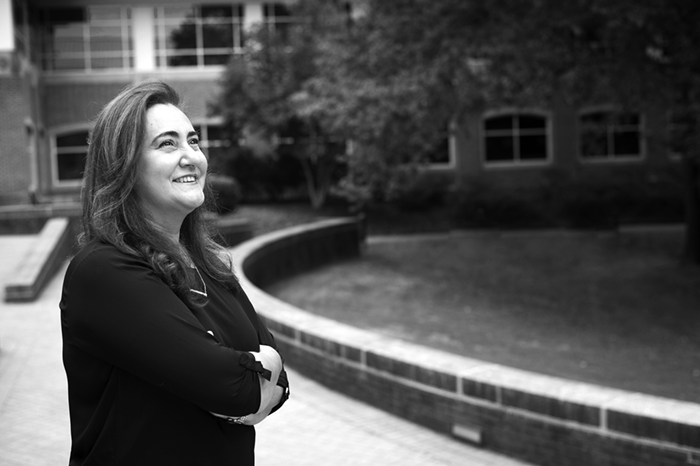Mojdeh Bahar ’94

Photo by Lisa Helfert.
by Lauren Davidson
Imagine walking through the produce section of your local grocery store and knowing the scientist who developed that new variety of seedless grapes on display. Or admiring a new ornamental plant that was developed in a nursery down the hall from your office. These are distinct possibilities for Mojdeh Bahar ’94, assistant administrator for technology transfer at the Agricultural Research Service (ARS) of the United States Department of Agriculture (USDA).
"The privilege of a liberal-arts education has enabled me to see connections that others may not readily observe, to think holistically and to communicate to different audiences effectively."
“I am a patent attorney by trade,” says Bahar, “and my current job exposes me to many different areas of science including production of food, nutrition and food safety and quality. I have broad responsibility for managing the intellectual property that evolves from the research programs and serve as a resource for management of intellectual property and technology transfer across the USDA.”
This means that Bahar is on the front lines of agricultural innovation, surrounded by the scientists, researchers and policymakers making things happen—things like lactose-free milk, shrink-proof wool, precision irrigation and McDonald’s Apple Dippers, which uses a coating developed at ARS that delays the browning of the apples.
“It is incredibly exciting to learn about new scientific inventions, to be able to help scientists realize the full impact of their research through technology transfer,” Bahar continues, noting also that her career enables her to combine her interests in business, science and law—fitting for a chemistry and French double major.
Prior to the USDA, where she’s been for three years, Bahar was chief of the cancer branch at the National Institutions of Health and chair of the Federal Laboratory Consortium. She has a master’s from New York University and a J.D. from the University of Maryland School of Law, but she still cites her Dickinson education as foundational to her success as a senior leader.
“Dickinson provided me with many opportunities to develop and hone my leadership skills: as a resident advisor, president of a service fraternity, teaching assistant and student representative to both the French and chemistry departments,” she says. “The privilege of a liberal-arts education has enabled me to see connections that others may not readily observe, to think holistically and to communicate to different audiences effectively. There are a lot of misunderstandings and misconceptions about intellectual property protection. Educating scientists on the importance of intellectual property and its potential effects on the adoption of their research outcomes is challenging yet rewarding and empowering!”
Learn More
Published March 30, 2017